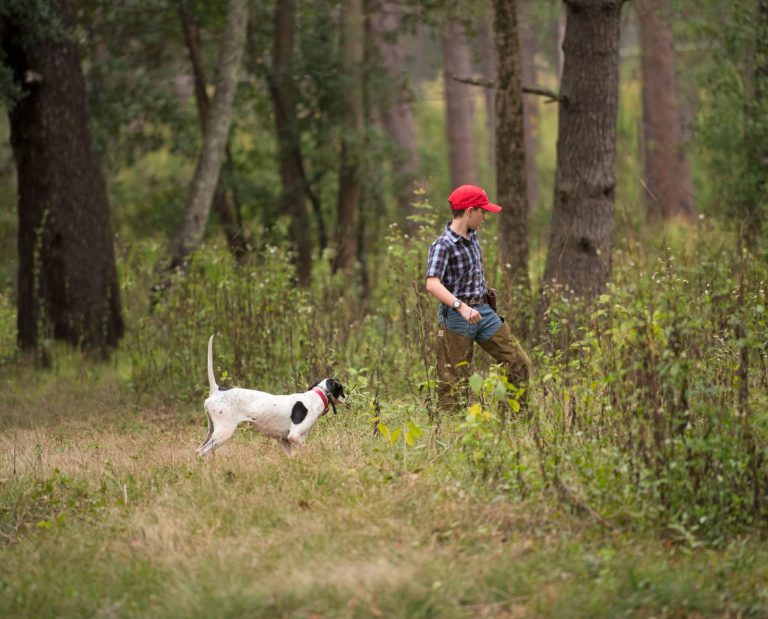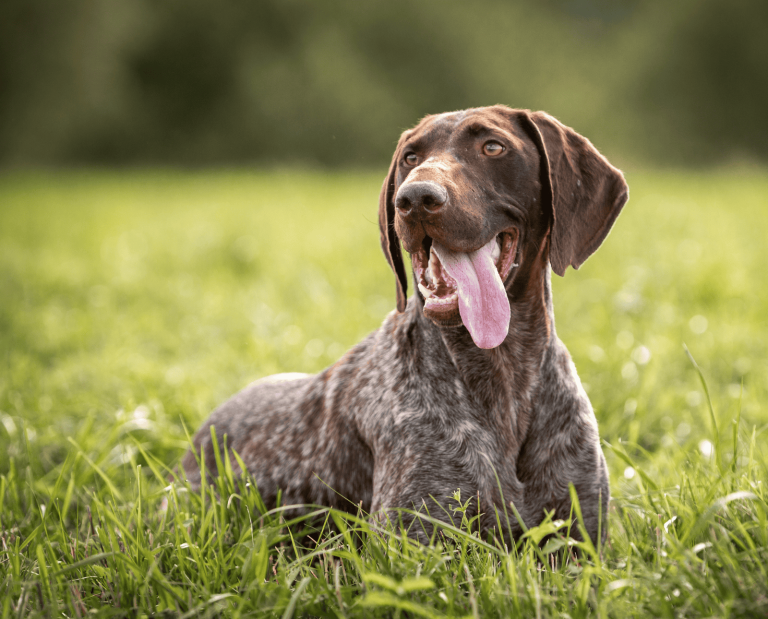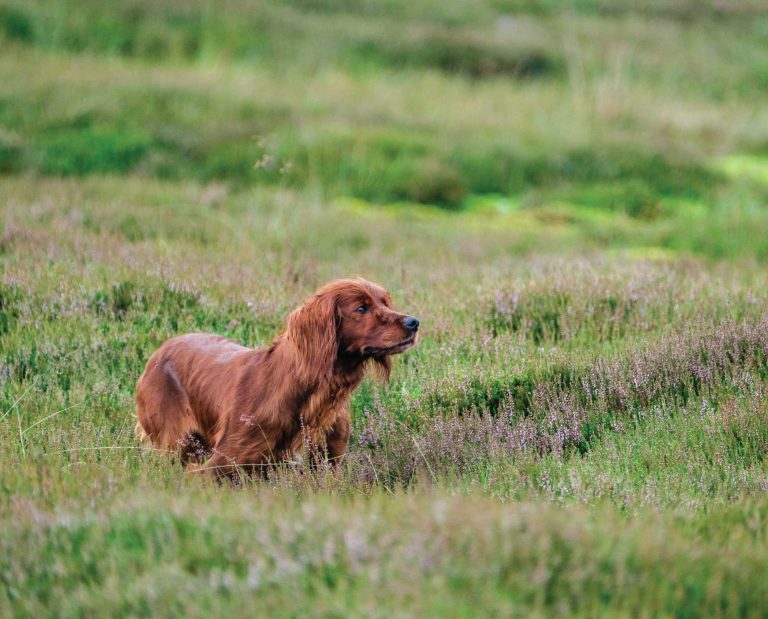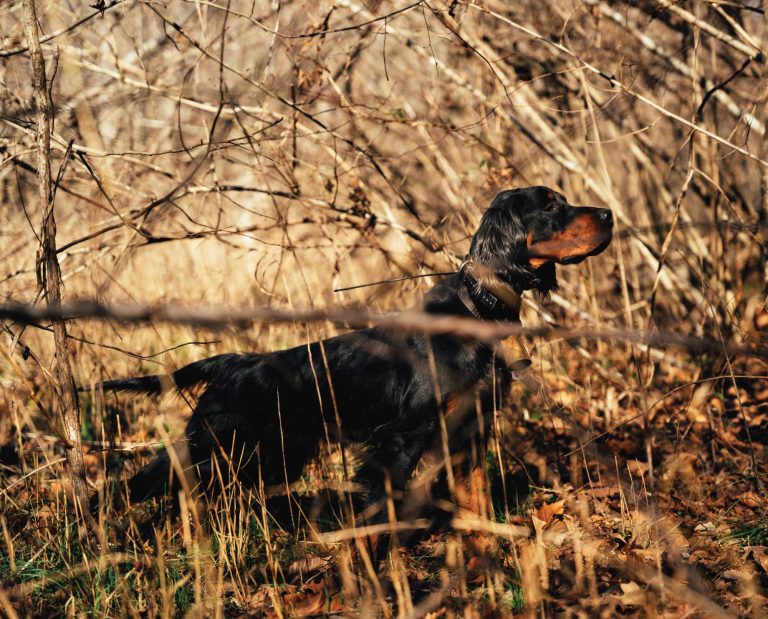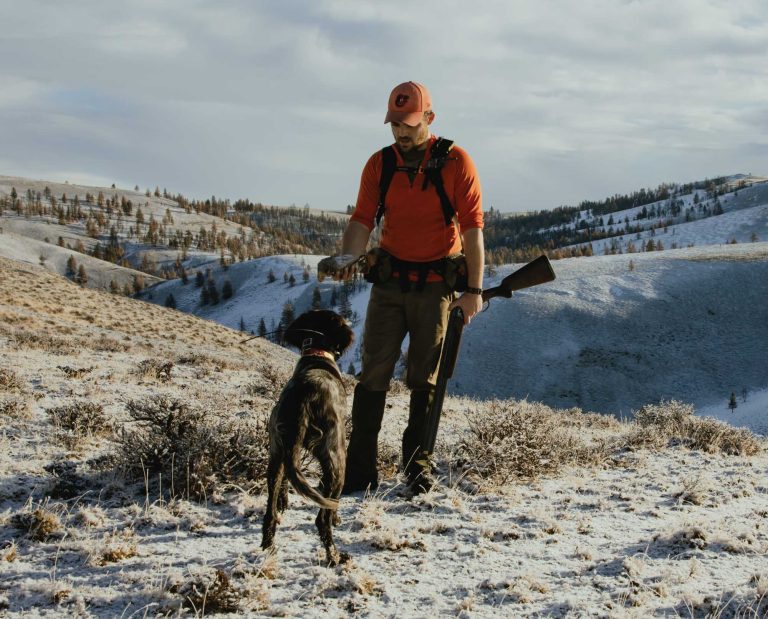Southeast WMA Bird Dog Training and Conditioning Guide
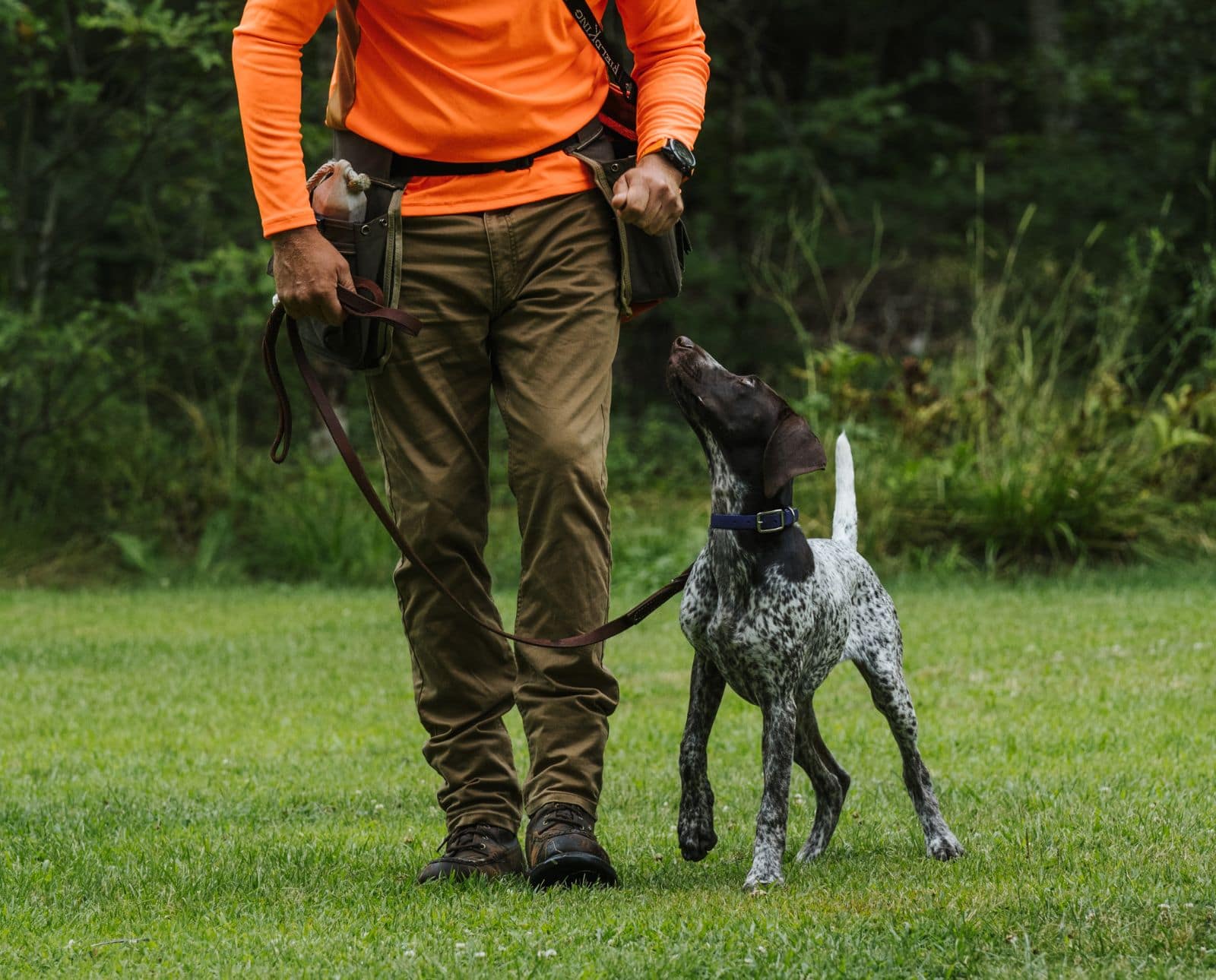
Learn public land regulations and tips for safe, effective pre-season prep while training bird dogs on WMAs in the Southeast
As the summer wanes, bird hunters across the southeastern United States gear up for the upcoming hunting season. Proper pre-season hunting dog training is essential, especially in the southern states of Georgia, South Carolina, North Carolina, Tennessee, Virginia, Alabama, and Florida. Training hunting dogs on wildlife management areas (WMAs) is a great way to prepare for fall.
The South’s summer heat is no joke. Intense weather coupled with varying laws governing bird dog training on public lands makes conditioning hunting dogs in the Southeast an ordeal of its own.
Regarding public lands, many wildlife management areas across these states require a special permit for dog training on public land. This is particularly important during the off-season and for hunting certain species like quail and grouse.
When using designated WMA dog training areas, be sure you understand your area’s legal restrictions. Some WMAs have specific rules about the time of year when training hunting dogs is permitted, and these vary from state to state. Additionally, during the off-season, many WMAs have leash requirements; dogs must be under control at all times. Uncontrolled dogs, especially ones disturbing wildlife out of season, can lead to fines or penalties.
Private land typically has fewer restrictions, if any, regarding dog training as long as no game birds are harvested.
Tips For Effective Pre-Season Bird Dog Training In The South
Setting birds, like pigeons and chukar, can benefit bird dogs by helping them get back into the hunting groove. However, most late summer dog conditioning does not require live birds. Instead, it’s time to work on commands and shake the dust off. And WMAs are great places to do just that.
Summer training and conditioning should be limited to early morning or late evening hours to avoid the heat and reduce stress on the dogs.
Physically Conditioning Hunting Dogs in Summer Heat
Build your dog’s stamina through regular exercise. Most pups have spent the off-season indoors, protected from the summer heat. Pre-season exercise needs to be as much about strength as acclimating to the weather. Exercises should only occur in the mornings and evenings when the risk of overheating is reduced. Gradually increase intensity, focusing on endurance, exposure, and agility as the hunting season nears.
Paw Conditioning
Another key step in preparing your bird dog for the upcoming season is reforming calluses on the paws. This can be done by roading your dog down a dirt road—avoid paved or heavily graveled roads.
On public lands, roading bird dogs on WMAs is best done off-leash, with the dog ranging ahead and periodically returning when called. As a hunter, this is a great opportunity to get back into shape yourself. Plan to walk, run, or ride a bike alongside your dog.
Check your dog’s pads after every conditioning session because a damaged paw pad can ruin a season before it even begins.
Field Training On Wildlife Management Areas
Simulate hunting conditions by training in environments similar to those encountered during the season. Work on essential commands such as “sit,” “place,” “heel,” “woah,” and “fetch,” ensuring your dog responds quickly and accurately. The goal is to reacclimate both you and your dog to hunting conditions but keep sessions short and positive. Most should last 15 minutes or less.
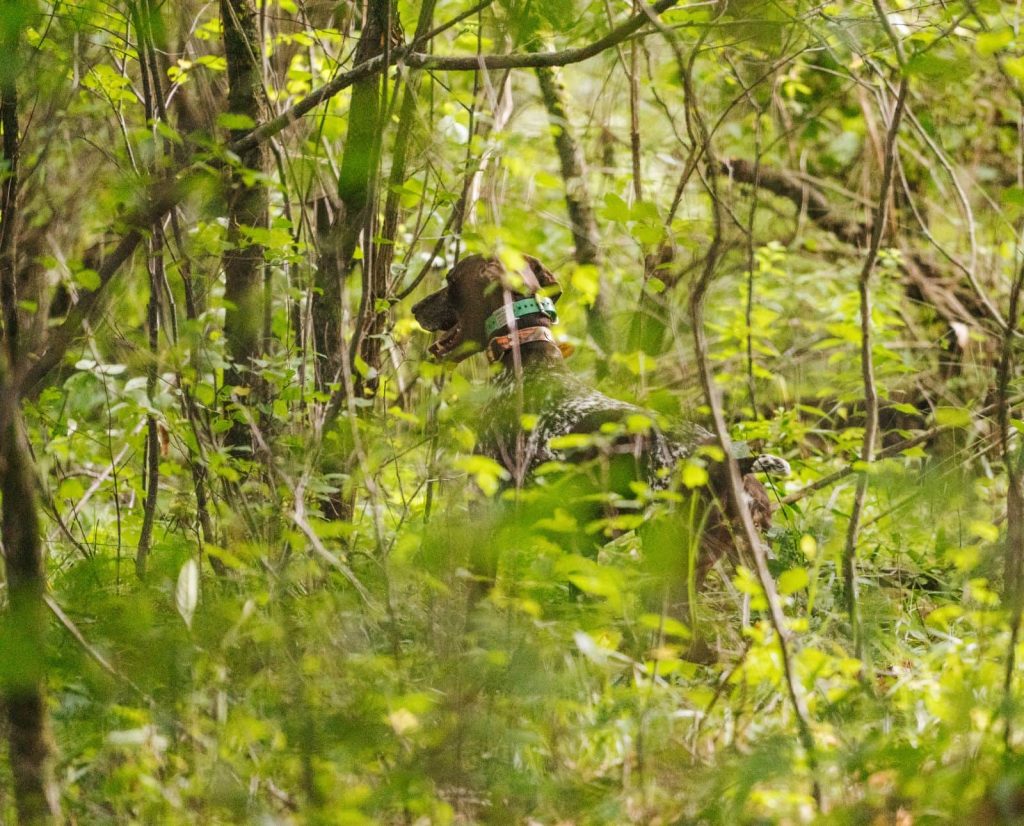
Re-Introduction To Birds And Scent Work
Reintroduce your dog to live or frozen birds from the prior season in a controlled environment. This helps them reacclimate to the scent, sight, and behavior of game birds. Start with a wing clip and a bumper for controlled scent training.
Gun Conditioning Hunting Dogs
When returning to the field with a firearm before hunting season, remember what a gunshot means to your bird dog. For pointing and flushing dogs, the gun is a mark. It’s an affirmation that the point or flush produced the right outcome. Gun conditioning hunting dogs should only be done over live birds, with a few exceptions for retriever training.
Water Work
If you plan on hunting wet areas, ensure your dog is comfortable retrieving from water. Practice retrieves from ponds or lakes, gradually increasing the distance and complexity.
In the South, be hyper-vigilant for large predators like alligators. Never train a dog near water where alligators may be present. Alligators pose a serious risk to both you and your dog.
Schedule An Appointment With Your Vet
Before the season starts, visit your vet for a full checkup. Discuss your dog’s diet—a high-protein, high-fat food is recommended—and ensure vaccinations and flea/tick medications are up to date.
Snake Avoidance Training
In the southeast, our weather can vary from week to week. Only a few weeks within every bird season might feature cold weather. As a result, there are many opportunities to encounter snakes while training and hunting, and snake avoidance training can help ensure your dog doesn’t find himself in harm’s way.
Snake avoidance training is a great thing to do pre-season. The methods vary, but if you have encountered snakes in your hunting area, snake avoidance training is something to research and work through with your dog before the season begins. Venomous snake bites are serious medical conditions that require immediate attention; they’re worth avoiding at all costs.
Understanding Dog Training Laws on WMAs in the Southeast
Each state has its own regulations regarding when, where, and how you can train hunting dogs on public lands. Even specific regions or WMAs may have additional rules. By adhering to these laws, hunters ensure a safe, legal hunting season while providing their dogs with the best opportunity to succeed.
Below is a summary of WMA dog training regulations for some southeastern states. Always consult your state wildlife agency before training or hunting on public lands because the rules can change year to year. Your state wildlife agency will be more than happy to answer any questions you have about dog training on public lands.
State-by-State WMA Dog Training Regulations
Every state has its own WMA regulations. The regulations listed below were last updated on July 12, 2025. For the most up-to-date information, check your state wildlife agency’s WMA dog training regulations.
Alabama WMA Dog Training Rules
In Alabama, dog training on public lands is generally permitted, but many WMAs have specific seasonal restrictions. For example, Skyline WMA restricts dog use outside of March 5 through August 31. In most cases, bird dogs may be trained year-round using pen-raised quail and blank pistols, but live ammunition is prohibited outside hunting seasons. Some WMAs may require check-in procedures or permits before training, so dog trainers should consult WMA-specific rules.
Florida WMA Dog Training Rules
Florida allows bird dog training on WMAs and private land from June 1 through March 1, though deer-dog training follows separate seasons and requires a no-cost WMA deer-dog permit. Training outside hunting seasons typically permits pen-raised quail and blank pistols only. Quail Enhancement Areas and individual WMAs may have additional restrictions. Verify regulations for each location.
Georgia WMA Dog Training Rules
In Georgia, dog training is allowed during small-game hunting seasons on most WMAs, with specific dates applying to certain areas like Chattahoochee and Oconee National Forest WMAs. Outside those windows, dogs must be leashed unless actively hunting or training. Special permits may be required on some WMAs, and hunters should review individual area regulations before training.
North Carolina WMA Dog Training Rules
North Carolina requires a Game Lands License to train dogs on public Game Lands. Some Game Lands restricting dog use from March 1 through June 30. Additional local permits may be required for certain areas, so trainers must check individual WMA regulations carefully.
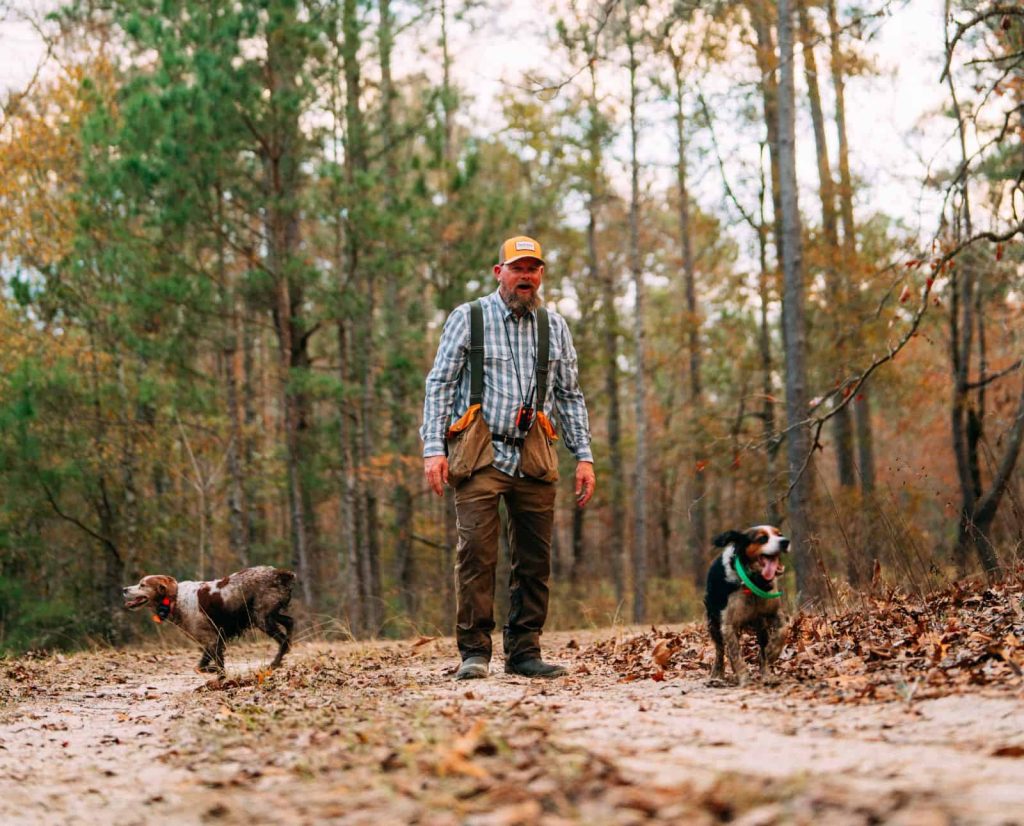
South Carolina WMA Dog Training Rules
South Carolina recently announced several new Public Bird Dog Training Areas. In these designated areas, trainers can train bird dogs from September 15 through March 15, except Sundays. Trainers may use pen-raised quail and pigeons. All area users must have a hunting license, WMA permit, and wear blaze orange.
According to the state’s regulations, these areas include:
- Angelus WMA in Chesterfield County
- A portion of the Lake Murray-Saluda River Tract
- A Portion of the Cliff Pitts WMA
- A portion of the Edisto River WMA
- A portion of the Landsford Canal WMA
Tennessee WMA Dog Training Rules
On some Tennessee WMAs, dog training is permitted year-round with a valid small game WMA permit. Other WMAs only allow dog training during an active small game season. Dogs not actively training or hunting must be on leash. Note that individual WMAs may have exceptions. Always verify permit requirements and local rules before training.
On private land, training is unrestricted except during big game seasons unless you have landowner permission.
Virginia WMA Dog Training Rules
According to Virginia‘s regulations, “You may train dogs on quail on the Amelia Wildlife Management Area (WMA), Cavalier WMA, Chickahominy WMA, Dick Cross WMA, Mattaponi WMA, and White Oak WMA, and on designated portions of the C. F. Phelps WMA from September 1 to the day prior to the opening date of the quail hunting season.” Additionally, nonmigratory birds and rabbits may be used for training purposes on Western Wildlife Management Area.
Only starter pistols may be used. You cannot legally release pen-raised birds or take game.
Before You Train, Check WMA Dog Training Regulations
Training and conditioning your bird dog before hunting season is essential for success in the field, especially in the challenging heat and terrain of the Southeast. Whether you’re working on public land or private property, careful preparation helps ensure your dog is physically ready, responsive, and safe.
When training dogs on wildlife management areas, it’s important to remember that each state and even individual WMAs may have specific rules and permit requirements. Before heading out to train your hunting dog on public land, always read and understand the WMA dog training regulations for your chosen area. Taking the time to stay informed will help you protect your dog, respect your state wildlife agency’s rules, and get the most out of your pre-season training efforts.




